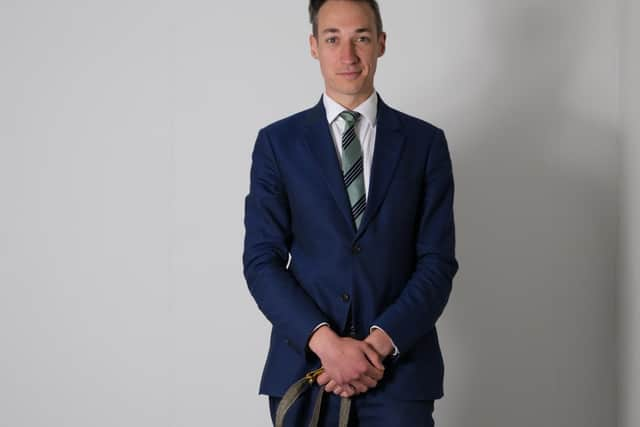Equity General Secretary Paul Fleming says Yorkshire losing out because of 'East-West divide in culture funding'
Paul Fleming of Equity, which represents 48,000 workers including actors, singers, dancers and designers, has called for an overhaul of Arts Council England into a more regional and democratic structure.
Mr Fleming told The Yorkshire Post's podcast Pod's Own Country there was an "enormous disparity between town and city" and a North-South divide in the way arts are funded.


Advertisement
Hide AdAdvertisement
Hide AdBut he said: "There's also, it has to be said, an East-West divide in an awful lot of culture and entertainment, both broadcast and live performance.
"You consider the amount of work that goes on in Manchester, Bristol, and so on down that western seaboard.
"And taking Birmingham to the east, you think about how many stories you hea dr from Norfolk, all up through Lincolnshire, and Yorkshire and so on.
"Hopefully, relocation of Channel Four to Leeds will make a difference to that but right up into Newcastle and so on, there is a creative industries division as well between East and West."
Advertisement
Hide AdAdvertisement
Hide AdMr Fleming said the only way to fix the problem was to "democratise, regionalise and co-operatise" BBC and Arts Council England, which invests money from Government and the National Lottery to support arts and culture.
He said: "Because this isn't just a conversation about live performance, but the whole infrastructure of art and entertainment.
"The Arts Council, if they were properly regionalised and the funding decisions lay in the hands of the artists and audiences that live in those parts of the world, you would end not only the disparities in funding, but also the fundamental flaws that lie within it."
Arts Council England points out that it has offices in each region of England with teams of staff who have local knowledge and expertise working on the ground in their communities, including an office in Leeds.
Advertisement
Hide AdAdvertisement
Hide AdThe organisation insists it supports venues and creators across Yorkshire, including in the east of the region, with decisions made locally and in partnership with local authorities and other stakeholders.
Decisions about funding are made through its area councils which includes regional artists and cultural organisations as part of their membership.
Officials say that Arts Council investment statistics are representative of where an applicant is based rather than the area where the activity we are funding takes place, which can lead to misleading per capita figures.
A spokeswoman said: “As we say in our new ten year strategy, Let’s Create, we want England to be a country in which the creativity of each of us is valued and given the chance to flourish, and where everyone has access to a remarkable range of high quality cultural experiences – it’s reassuring to hear that Paul Fleming is supportive of those principles.
Advertisement
Hide AdAdvertisement
Hide Ad“We already work in close partnership with local authorities across Yorkshire, bringing our expertise alongside local knowledge to support investment in arts and culture."
The BBC, for its part, has committed to better reflecting life outside the capital and recently announced a host of new drama commissions including Better, "a thrilling redemption story, set in Leeds and using the landscape of the city and surrounding countryside as a backdrop to what becomes an epic battle for one woman’s soul".
Piers Wenger, Director BBC Drama said in March: "Telling stories that reflect the whole of the UK is about more than meeting quotas.
"It’s about enriching and emboldening what British drama means by honouring the true range of authorship across all of our nations and regions."
